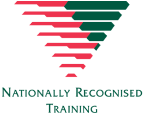
Schools Program
BSB20120 Certificate II in Workplace Skills
Graduate job-ready for any professional workplace and stand out as a preferred candidate with this entry-level Workplace Skills course in our Schools Program.
Prepare yourself for an entry-level role in any professional environment
The BSB20120 Certificate II in Workplace Skills is designed for students in years 10, 11 or 12 who are interested in stepping confidently into an entry-level role in any professional environment.
This qualification will provide you with a nationally recognised qualification and a strong pathway to continue your study and enhance your career opportunities. Through this course, you’ll develop the skills that will set you up to work as an office assistant in a range of industries. Learn how to work with technology, enhance your communication skills, plan and practise time management, and more.
Graduates of this course will be ready to enter the workforce and embrace best-practice workplace principles.
This course may be integrated with the school curriculum, to ensure you still receive your high school certificate upon graduation.
Study pathways:
BSB30120 Certificate III in Business (Medical Administration)
BSB30120 Certificate III in Business (Business Administration)

Course Outcomes
Through a mixture of theory and coursework, the BSB20120 Certificate II in Workplace Skills will provide you with a solid foundation on which to grow your career. This qualification equips you for roles such as:

Office Receptionist
In the role of Office Receptionist or Front Desk Attendant, you’ll play a supportive or facilitative role in a professional environment. Often the first point of contact for customers or clients, the Office Receptionist or Front Desk Attendant represents the organisation and has contact with people face-to-face, via telephone or email.

Administrative Assistant
Everything in its place and a place for everything. As an administrative assistant or secretary, you will be tasked with filing and sorting documents. You will also be a key person in the organisation with responsibilities including scheduling appointments and supporting your colleagues with clerical jobs.
Course Overview
Delivery Structure
Studying the Certificate II in Workplace Skills with Foundation Education is flexible and you can tailor it to suit your needs. The course is broken down into two parts:
1. THEORETICAL
The theoretical component of this course is delivered online and submitted through our Learning Management System. 10 course units to complete online, at your own pace.
2. WORK PLACEMENT
Where required, we may assist you in identifying work placement options. Check state or territory requirements.
Units
Achieve your qualification by completing the following units of competency:

Want More Info?
Download our free Schools Brochure for more information or call 1300 959 540.
Proud member of

Funding
© Foundation Education | RTO Number 22557
